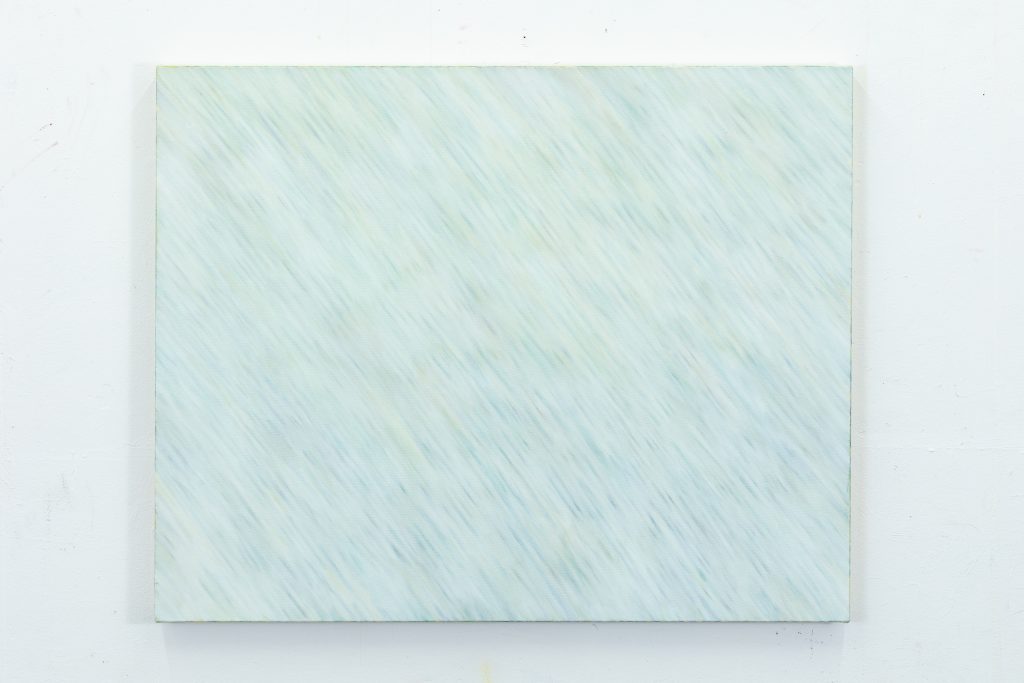Nai-Jen Yang (b.1996 Taipei, Taiwan) studied at the Royal College of Art in London. To Yang, it’s about the process as she sees painting as a way to collect, preserve, and/or pack up fleeting moments in life. Instead of the final image she made on the surface of the canvas, it’s the experience she had during the making process that’s more important to her.
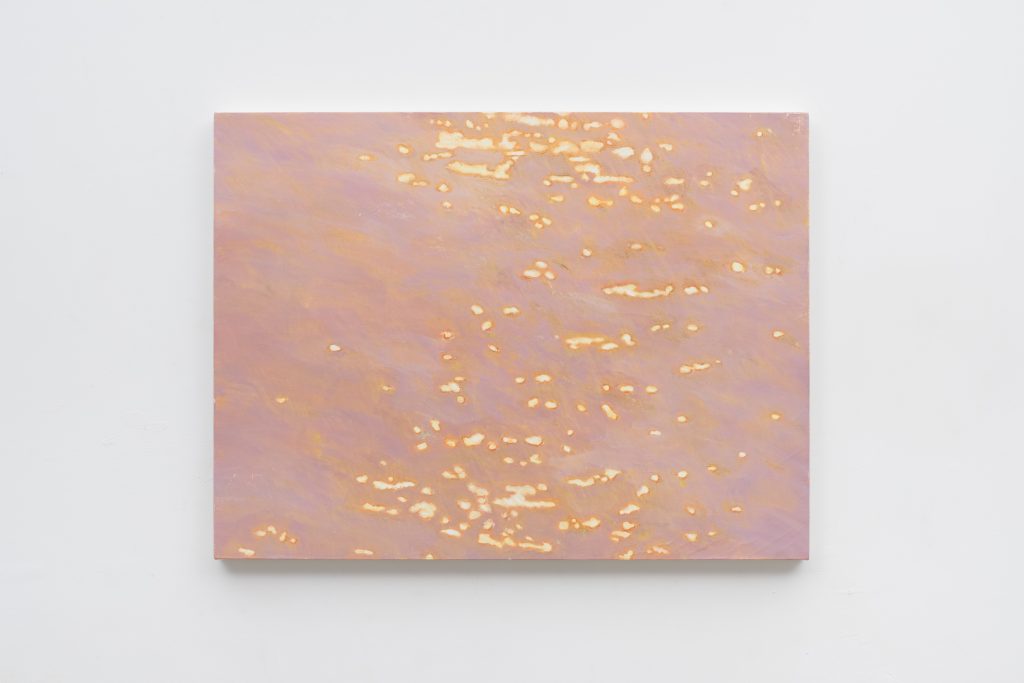
Tell us a little bit about yourself. Where are you from originally and when did art first
enter your life?
I was born in Taipei, Taiwan and had lived there for more than twenty years before I came to study in London. As many other painters would say, I’ve been drawing a lot since I was a little kid. But the earliest memory about art that I can recall is that there was a teacher when I was in kindergarten who did fascinating drawings of princess with markers. She drew princess in different hairstyles and dresses for us everyday, which seems very creative when I am looking back now.
Has your work always taken on the style it currently embodies?
I’ve gone through quite a few stages in my practice in the past few years. Though my work looks pretty abstract now, I was doing something more figurative before. And I think the change happened because instead of finding something I want to say through painting, my practice focuses more on the things I can do with it. I am always looking for new ways to work within my paintings.
What’s a day in the studio like for you?
I am quite an early bird and I prefer to work during daytime. Though I am going to studio a bit late recently, I usually arrive around 9-10am, and my day in studio starts with looking at my paintings while having breakfast. As soon as I start to work, it will be in a paintinglooking loop— adding something to the painting, looking at it and thinking of it, and then adding again until I feel it is done. Since I use oil paint and it takes time to dry, I work on multiple paintings at the same time. So sometimes when I doesn’t feel right to paint, I’ll just be looking at and moving them around in the studio.
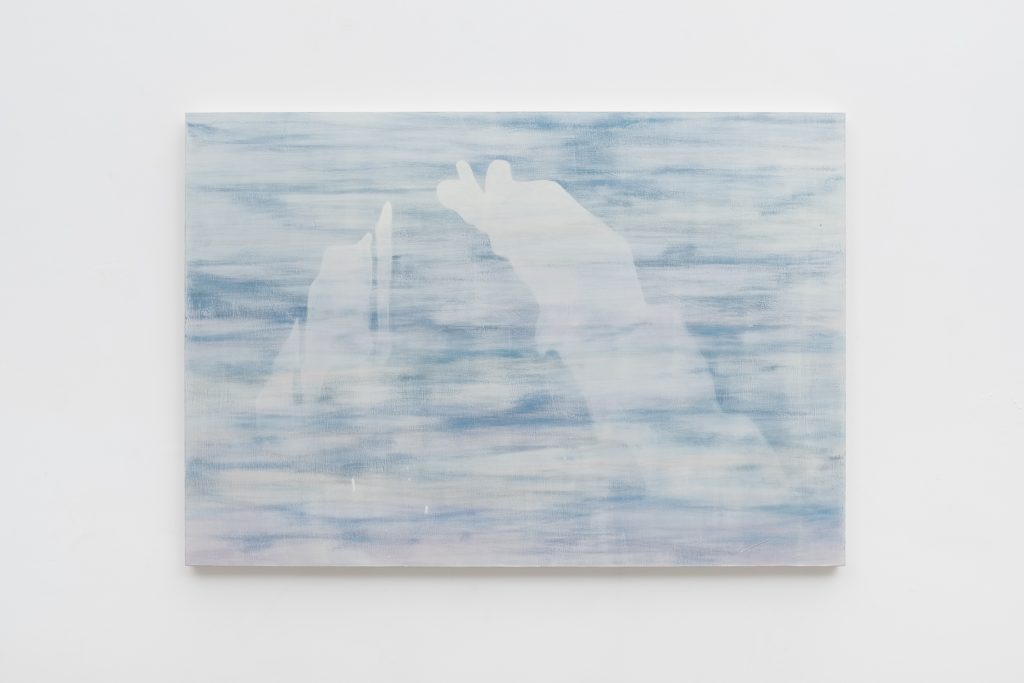
What’s next for you?
At the moment I am mainly working toward a group show in Beijing in spring, and the RCA degree show in London this summer. And I will be in an artfair and have a small group show in Taiwan this year as well.
From where do you draw inspiration?
My inspiration comes from everyday life. It used to be daily objects I saw, and now it is more the feelings I get from my surroundings. Like the feeling of a space, the wind and rain…I shifted from the visible to the invisible.
Have you always painted in the style your work currently inhabits?
I always tend to paint with thin paint; however, it used to be very wet and now it is getting drier. In terms of colors, there was a period of time when they were more vivid, but most of the time my color palette has been quite soft and subtle.
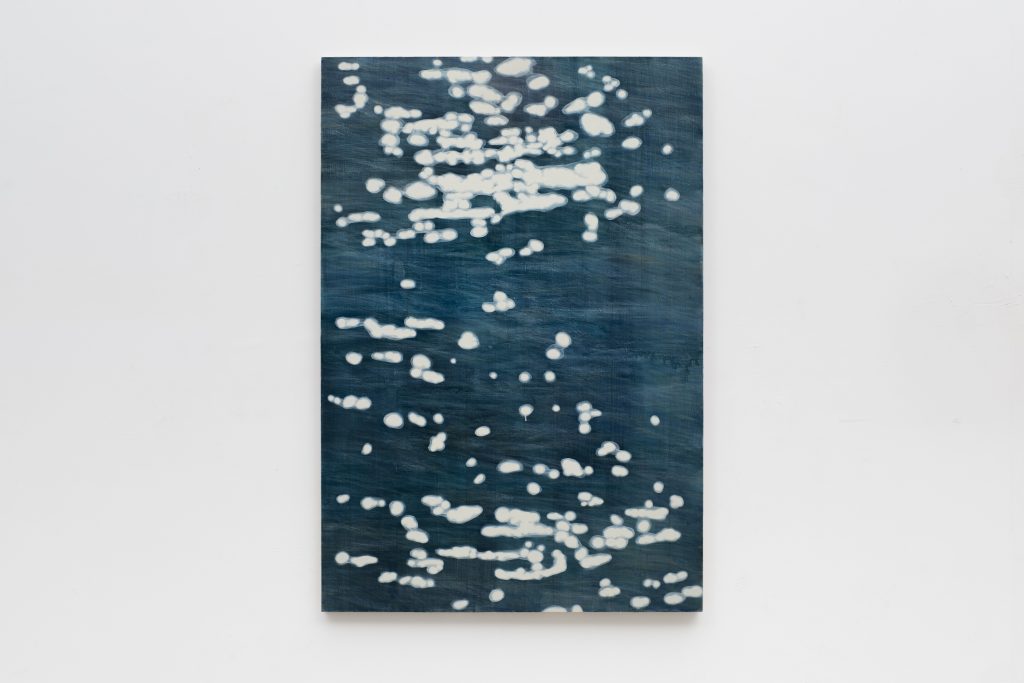
What source material do you base your work off of?
My paintings are mostly based on myself, my memories, imaginations, feelings, and subconscious…Recently I am more aware of the music or sound I listen to while painting, as it gives me different kind of energy or vibe and effects the ambience of my work.
Does your work reference any Art Historical movements?
Not really, or not intentional I would say.
What is your process like? How do you begin a work?
I used to paint from the photos I took from my daily life. I would print out the photos and make drawings on tracing paper, and then put them on graph paper to decide the composition of the paintings. I drew grids on my canvas to transfer my drawings. I am very bad at using projectors so everything was very handmade. However, in my recent works, I’m trying to free myself from some restrictions I used to have. I stop making precise plans for my paintings. The size of the canvas I am working on now is 160x160cm, which is about my height. I go straight onto it, and the only thing in my mind while painting is to fill up the surface.
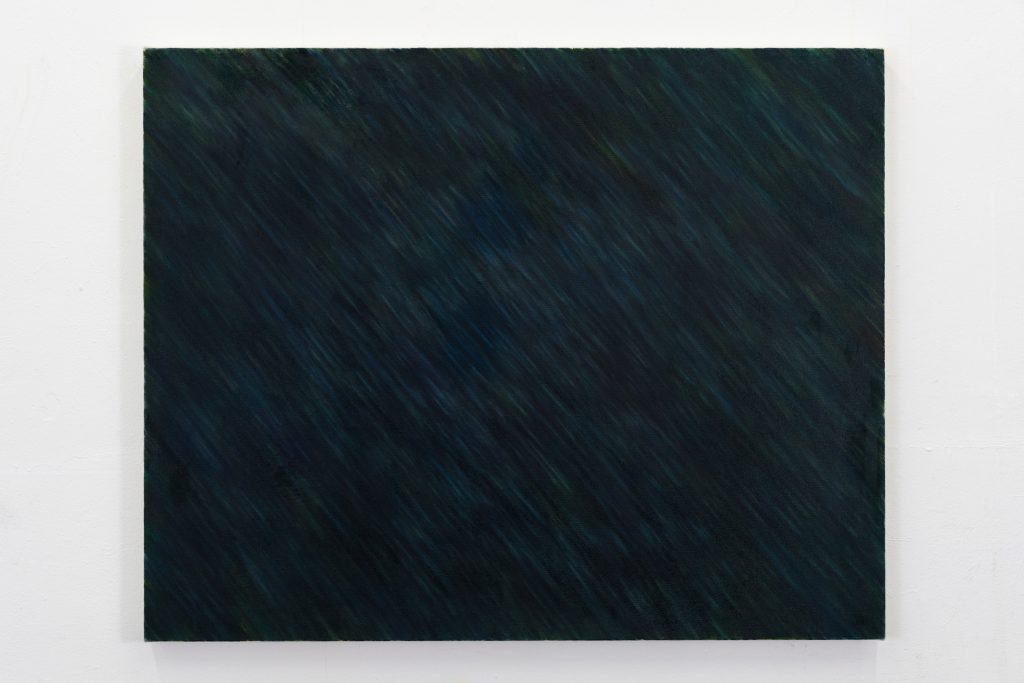
At the end of every interview, we like to ask the artist to recommend a friend whose work you love for us to interview next. Who would you suggest?
James Prapaithong, who is a very good friend and has been my art mentor since I came back to London.
